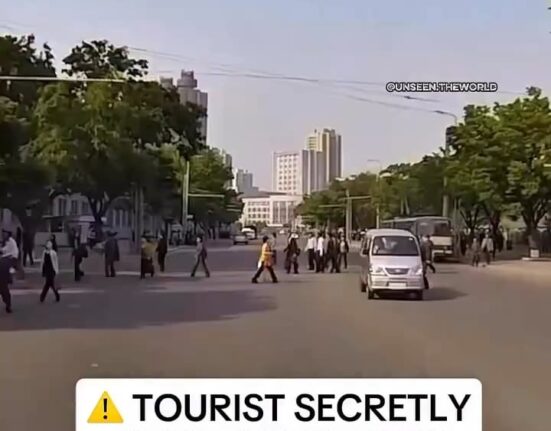In the bustling city of KwaZulu-Natal, a shadow looms over the entertainment industry, casting a pall of fear and uncertainty. Lt-Gen Nhlanhla Mkhwanazi, the police commissioner, recently unveiled a disturbing revelation that sent shockwaves through the community. He exposed a sinister plot orchestrated by senior officials to obstruct and silence investigations into the tragic murders of beloved figures in the entertainment realm.
Mkhwanazi’s words painted a chilling picture of a system tainted by corruption, shielding criminal networks with ties to drug cartels. These nefarious forces have brazenly impeded the pursuit of justice, leaving families and fans of slain artists bereft of closure. The commissioner’s stark warning reverberated with the gravity of the situation, transcending mere criminality to reveal a systemic decay that threatens the very fabric of society.
Amidst a backdrop of heightened tension and intrigue, Mkhwanazi disclosed a crucial breakthrough in the ongoing investigations. Firearms recovered in Gauteng emerged as pivotal evidence, linking back to a string of unsolved murders that have haunted the industry since 2021. While the specifics of the victims remain veiled in secrecy, the magnitude of their impact on South Africa’s cultural landscape is undeniable.
“I’m not saying which type of artists, but the prominent South African artists that were murdered, their cases haven’t been resolved to date,”
Mkhwanazi lamented, his voice tinged with a mix of frustration and determination. The unresolved mysteries surrounding these high-profile killings cast a long shadow of doubt over the efficacy of law enforcement and the integrity of the justice system. However, amidst the darkness, a glimmer of hope emerged as Mkhwanazi revealed a breakthrough in the high-profile case involving AKA and his friend, where an arrest had been made—a rare beacon of progress in a sea of uncertainty.
Yet, the commissioner’s tone darkened as he shifted his focus to the challenges faced in Gauteng, where the wheels of justice seemed to grind to a halt. Despite identifying the suspects linked to the heinous crimes through forensic evidence, the road to justice remained obstructed by bureaucratic inertia. Mkhwanazi’s piercing accusation laid bare the insidious influence of senior officials who placed the interests of criminal syndicates above the pursuit of truth and justice.
“The failure to act is rooted in interference from senior officials who are protecting criminal networks tied to drug cartels,”
Mkhwanazi declared, his words resonating with a sense of urgency and defiance. The entrenched corruption and manipulation within the system threatened not only the resolution of individual cases but also the very essence of justice itself. The commissioner’s impassioned plea for action underscored the need for a systemic overhaul to cleanse the system of its deep-seated rot.
As the revelations unfolded, a chilling realization dawned—that the scourge of corruption and criminality extended far beyond political vendettas and drug-related crimes. The sinister web of influence stretched its tendrils into the realm of entertainment, where artists, performers, and creatives found themselves ensnared in a deadly game of power and deception. Mkhwanazi’s words served as a clarion call to arms, urging a shift in focus from petty squabbles to the insidious forces that threatened the very soul of the nation.
“There’s a deep cancer in the system. We have to stop chasing children in Inanda and start going after those bringing drugs into this country and supplying weapons to killers,”
Mkhwanazi’s impassioned plea reverberated with a sense of urgency and righteousness. The misplaced priorities that prioritized minor offenses over the heinous crimes perpetrated by well-connected criminals stood as a stark indictment of a system in dire need of reform.
In the wake of Mkhwanazi’s revelations, a somber mood settled over the entertainment industry, tinged with a sense of foreboding and apprehension. The veil of glamour and fame that shrouded the lives of artists and performers had been pierced, revealing a darker reality lurking beneath the surface. The unresolved murders of prominent figures served as a stark reminder of the fragility of life and the pervasiveness of evil in even the most seemingly glamorous of worlds.
As the community grappled with the implications of Mkhwanazi’s expose, a sense of solidarity and determination began to emerge. The call for justice echoed through the corridors of power, demanding accountability and transparency in the face of entrenched corruption. The battle lines had been drawn, not just between law enforcement and criminals, but between the forces of darkness and those who dared to stand in their way.
In the aftermath of Mkhwanazi’s revelations, a sense of unease lingered in the air, a palpable tension that hinted at the storm brewing on the horizon. The fate of the entertainment industry hung in the balance, caught between the twin specters of corruption and justice. As the shadows lengthened and the night descended, one thing remained clear—the fight for truth and justice had only just begun.









Leave feedback about this